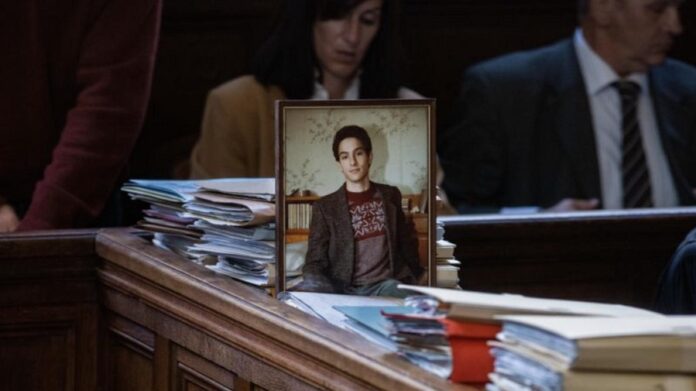CHENNAI: Antoine Chevrollier’s four-part miniseries, “Oussekine,” is a dramatization of a ghastly event that happened one night in the center of Paris.
Malik Oussekine, barely into his twenties, meets a terrible end when policemen on motorcycles chase him into a building and brutally beat him to death. He had no criminal record, no political affiliations or sympathies. But he was an Algerian Muslim.
The series follows the Oussekine family, of a mother and her five children, who had left Algeria and made France their home, soon becoming citizens. They are proud and happy to be French, but are never allowed to forget that they are from another country.
The series follows the Oussekine family, of a mother and her five children. Supplied
The first episode of “Oussekine” begins on the evening of Dec. 5, 1986. While students are demonstrating on the streets of Paris against the Devaquet law, Malik Oussekine (Sayyid El Alami) is watching a concert by Nina Simone in Saint-Germain-des-Pres. He is excited about it, and before leaving home gently refuses to have the potato wedges his mother, Aicha (Hiam Abbass), has made. He says he would be late for the event and rushes out.
Post-concert, he is walking back home, happy about the entire evening, when he finds himself chased by police officers on motorcycles. He runs away and takes refuge inside a building, but a couple of men in uniform get inside and brutally beat him. Later as the episodes unfold, we learn all about the disillusionment, frustration and anger that are rampant in the force. And Malik was an unfortunate victim who was in the wrong place at the wrong time.
Hiam Abbass portrays the student’s mother. Supplied
The death is revealed in layers over the episodes, each about 60 minutes. Chevrollier packs in enough surprises to keep us glued to our TV sets, but the series does have its weak moments, giving us a feeling that it is not flowing as easily as it ought to be with some flashbacks appearing a bit confusing. The courtroom scenes are often listless, the only dramatic high coming from Malik’s sister, Sarah (Mouna Soualem), who at one point tells the two accused police officers not to dare look her in the eye. Some of the retorts made by the lawyer for the Oussekine family, Georges Kiejman (Kad Merad), are pointed and damning. Is this country not founded on the principles of liberty, equality and fraternity, he asks.
While Malik’s other siblings, Mohamed, Benamar and Fatna, make little or no impression, it is Sarah who is unforgiving. “Why are the accused not in handcuffs?” she questions the lawyer. Closest to her brother, she is as devastated as her mother, and the two actresses brilliantly convey a sense of immense sadness and helplessness.
Yet, the series does not moralize. Rather, it reminds us that life must continue. Acceptance is perhaps the greatest balm.


